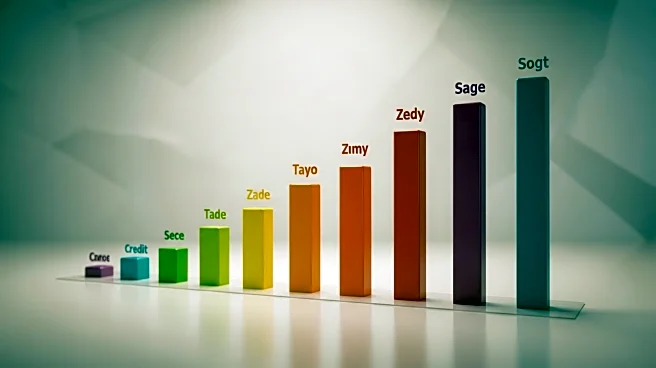What's Happening?
A recent Experian report reveals that the average American credit score is 717, with significant variations across different age groups and states. Gen Z averages a score of 681, Millennials 691, Gen X 709, and baby boomers 746. The report also highlights state differences, with Mississippi having the lowest average score at 680 and Minnesota the highest at 742. Despite improvements in credit scores, U.S. consumer debt continues to rise, averaging $105,000 per person and totaling $18.04 trillion.
Why It's Important?
Credit scores are crucial as they affect interest rates, credit card quality, and insurance premiums. Higher scores generally lead to better financial terms, impacting individuals' ability to purchase homes, cars, and other significant investments. The rising consumer debt, despite improved credit scores, suggests potential financial strain on households, which could affect economic stability and consumer spending patterns.
What's Next?
Financial experts suggest strategies to improve credit scores, such as increasing available credit and understanding utilization timing. Consumers are advised to pay down credit card balances before statements are issued to avoid negative impacts on their scores. As economic conditions fluctuate, maintaining good credit practices will be essential for financial health.
Beyond the Headlines
The disparity in credit scores across states and generations reflects broader economic and social factors, such as financial literacy, access to credit unions, and regional economic conditions. These differences may influence policy decisions and financial education initiatives aimed at reducing economic inequality.











